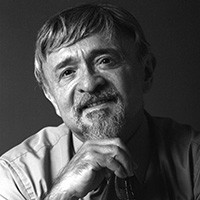Next up
Daoism
Continuing in
Daoism
This is a preview of subscription content
Your browser needs to be JavaScript capable to view this video
Try reloading this page, or reviewing your browser settings
You're watching a preview of subscription content. Log in to check access
The lecturer presents an expert analysis of Daoism and how we can conceptualize it. At the hand of the Daodejing (The Way and Its Power) and The Zhuangzi, two classics of Daoism, the lecture explains how we can view Daoist thought. The nature of reality as ‘flowing’ resembles that if something is natural, it is good. The definition of Dao, the way, is elaborated upon through dimensions of language, society, and being. It discusses the connected terminology of Wuwei, meaning non-action or purposeless action as resembling the natural flow and acting in full integrity.
Introduction
The lecturer, puts Daoism in perspective with other thoughts and origin, presents an expert analysis of Daoism and how to conceptualize it.
About The Author

Guy S. Alitto one of the best sinologists of modern times, Guy Alitto is an American academic in the History and East Asian Languages and Civilization Departments at the University of Chicago. He is known in China for revitalizing the scholarship on Chinese Confucian scholar Liang Shuming. He is best known in America for his scholarship and for his role as translator for the first official Chinese delegations to the United States after Richard Nixon’s first visits to China.
About this video
- Author(s)
- Guy S. Alitto
- DOI
- https://doi.org/10.1007/978-981-99-7208-1
- Online ISBN
- 978-981-99-7208-1
- Total duration
- 20 min
- Publisher
- Springer, Singapore
- Copyright information
- © Foreign Language Teaching and Research Publishing Co., Ltd 2023
Related content
Video
- Guy S. Alitto
Video
- Guy S. Alitto
Video
- Guy S. Alitto
Video
- Guy S. Alitto
Video
- Guy S. Alitto
Video
- Guy S. Alitto
Video
- Guy S. Alitto
Video
- Guy S. Alitto
Video
- Guy S. Alitto
Video
- Guy S. Alitto
Video
- Guy S. Alitto
Video Transcript
We are now going to discuss another one of those broader classifications, one of those-isms that arose during the Period of the Hundred Schools and that is Daoism. There are two basic classics to Daoism: one is The Way and Its Power (Daodejing), and the other The Zhuangzi. The Way and Its Power was allegedly written by someone named Laozi, but that’s very difficult to say. We do know, however, Zhuangzi, the author of The Zhuangzi, was a real person. Zhuangzi is later; Laozi is before.